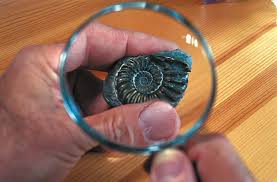
Evolutionary Patterns, Rates and Trends
Assessment
•
Azi Jamaludin
•
Biology
•
University
•
256 plays
•
Medium
Improve your activity
Higher order questions
Match
•
Reorder
•
Categorization
.svg)
actions
Add similar questions
Add answer explanations
Translate quiz
Tag questions with standards
More options
10 questions
Show answers
1.
Multiple Choice
The number of species on island depends on the size of the island and its distance from mainland. This statement would most likely be made by _______________.
a geologist
an explorer
a philosopher
a biogeographer
2.
Multiple Choice
The first comprehensive theory of evolution, which proposed that the mechanism was an inner drive for improvement, was proposed by _______________.
Aristotle
Lamarck
Wallace
St Hillarie
3.
Multiple Choice
Presence of vestigial body parts in organisms like coccyx in human and leg bones in snakes _______________.
challenge prevailing beliefs
support idea on evolution
add up naturalist confusion
all of the above
4.
Multiple Choice
Porpoise flippers, human arms, bat wings and elephat’s leg are different outwardly but have similar form internally. This shows they have_________________.
common ancestory
common eating behaviour
common habitat
all of the above
5.
Multiple Choice
Organs of different organisms that have a similar form due to a common origin are ______________.
Homoplastic
Homologous
Vestigial
Analogous
6.
Multiple Choice
These are inferences made in the Principle of Natural Selection except:
Individuals with less adaptive traits cannot survive.
Adaptive traits may make an individual better suited to an environment.
Individuals that better suited to environment are better able to survive tend to leave more offsprings
Frequency of adaptive tends to become more common in a population over time.

Explore this activity with a free account
Find a similar activity
Create activity tailored to your needs using
.svg)

Evolution
•
7th - 9th Grade

Mechanisms of Evolution
•
12th Grade

Nucleic Acids
•
University

Natural Selection
•
9th Grade

Evolution
•
4th Grade

Artificial Selection
•
6th - 8th Grade

Intro to Evolution
•
9th Grade

Inheritance
•
10th Grade